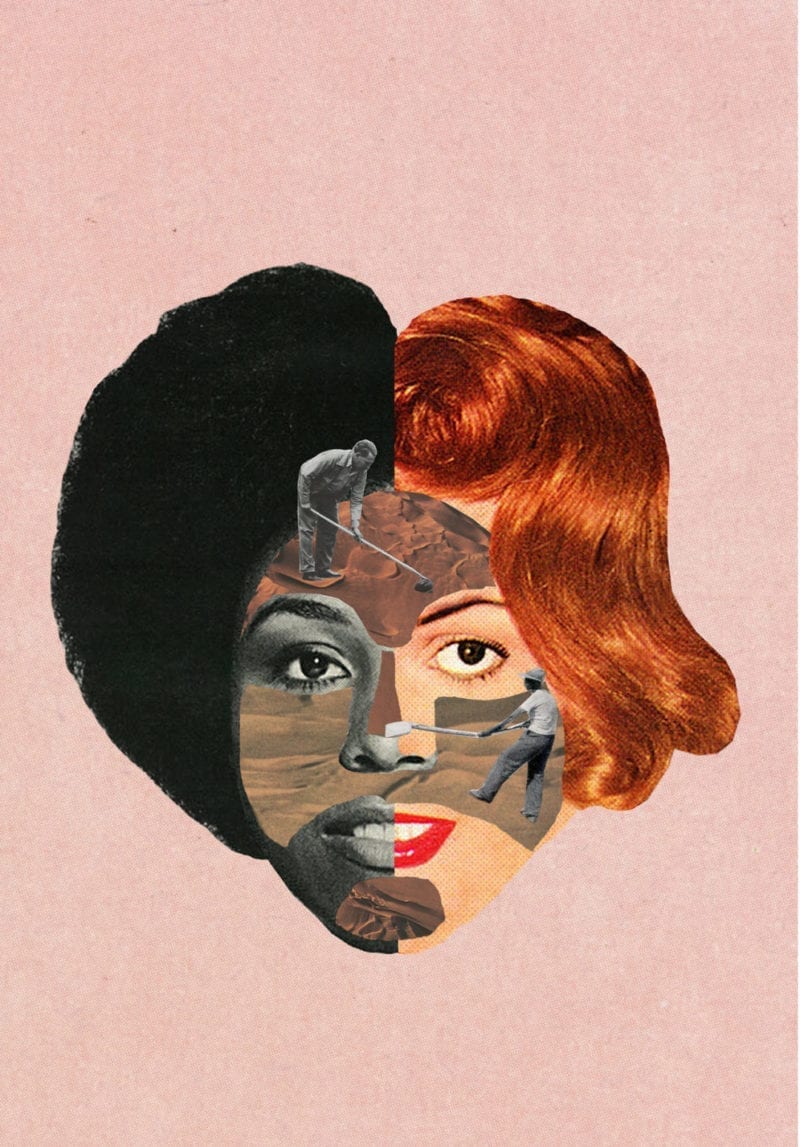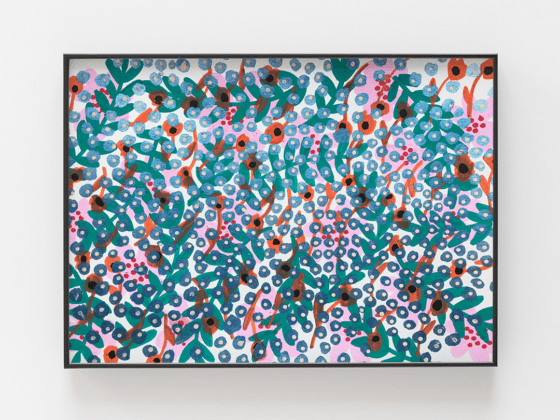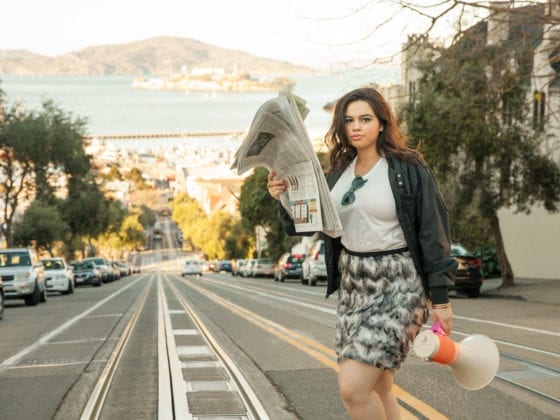A Roundtable With Darling offers real talk from a few of our writers. This Q&A series will take an issue and share the writers’ personal experience and lessons learned. The hope is to create a space of connection and transparency.
The past few weeks have felt like a lifetime. With the news of the murders of George Floyd and Breonna Taylor gaining global attention, protests broke out across the country and around the world. We, at Darling, want to be a part of the change. Once the protests stop and a new topic is trending, we don’t want to stop holding space for conversation and dialogue about race and the systematic racism disproportionately affecting black communities. One resource we have to offer is our platform for writers to share their stories, and we will continue to steward that platform to elevate writers who are women of color.
Today’s Roundtable With Darling is a Part II to our discussion on race in America. We hope that this conversation will spur you to conversation in your private life and to action. George Floyd’s 6-year-old daughter, Gianna, said in a now viral video that, “Daddy changed the world.” Let’s do the work so Gianna’s words will ring true.
What is your opinion about the current state of race in America and equality?
“It’s exhausting and inspiring. It’s emotionally exhausting consistently seeing men and women who look like me be treated as second-rate citizens and having uncomfortable conversations with people I love. However, it’s also inspiring to see this awakening in our country and the demand for action and change.” — Jacie Scott, Baton Rouge, Louisiana
“I can’t speak well on the topic of racism or equality in America, nor can I speak with a degree of personal experience. I can only try to speak with humility. I know things desperately need to change in America, that racism is unfortunately alive and well and that we are very, very far from attaining equality.” — Kelsey Yarnell, San Diego, California
“As a black woman, I recognize the monumental achievements that abolitionists, activists and civil rights leaders have made in progressing race relations in our country. Still, opportunities for the black community have been limited, and in many ways stagnant, due to an oppressive and abusive system. When I think about race in the U.S., I am struck by the reality that circumstances are absolutely heartbreaking but not for everyone. That’s the whole point, isn’t it? Not for everyone. It’s really intriguing, and ultimately tragic, what can exist simultaneously: billionaires and people who are homeless, excess and poverty. Black culture is revered, monetized and mimicked in fashion, sports and music, but whether or not black lives matter at all is up for discussion. It’s really something.” — Shelby Thomas, Denver, CO
“As a British national living in the States, I have learned the most about the current state of race from those closest to me who experience it on a weekly, if not, daily basis. When asking a dear friend, Irvin, about this he remarked:
‘America was intended to be a four legged chair of Freedom, Courage, Commitment and Faith pulled to a table made up of our history. I would propose that it has been replaced by a sign that says: Bring Your Own Chair. The current state of race and equality in America is governed by political gain and policed by deceptive agendas. It is shackled to personal gain when it should be arm-and-arm with progress. Having said that, let me be clear—the current state of race in America and equality is weak, but it’s growing. In public schools, in local churches, in political campaigns and in the homes of the American people, it is weak, but growing.’” – Nadia Hussain, London, UK
“I am optimistic but hesitant. The reality is we have seen this before. The murder of Emmett Till in 1955 sparked the entire Civil Rights movement. When his mother made the decision to keep an open casket at his funeral, she wanted the world to see what the men who murdered her son had done to him.
The video of the murder of George Floyd sparked global outrage. People began protesting, signing petitions and taking to social media to spread awareness. While all of this is great, we’ve seen it before. America woke up once, and it fell back asleep. I think the entire black community is waiting to see if this is just a knee-jerk reaction or if there will be real change.” – Stephanie Taylor, Los Angeles, CA
Do you think race is a difficult topic to talk about? Why or why not?
“I don’t find race to be a difficult topic because it’s a part of who I am. I’ve always been seen as black first—a black girl, a black woman, a black dancer, a black writer. I’m not one to shy away from those conversations, but I’ve found many people will tap dance around it. I think part of the reason why I’m so inspired by what’s happening today is that many are finally getting to the root of why race talk makes them so uncomfortable.” — Jacie Scott
“Race can be a difficult topic to talk about because it requires that the person speaking—namely, the person in the position of privilege—approaches the topic with total humility, teachability and even remorse. Unfortunately, those qualities can be difficult to come by.” — Kelsey Yarnell
“In my experience with many people, it is difficult to have real conversations that delve deeper than humor that is rooted in stereotypes or perceived positive aspects of an ethnic group’s culture. Systemic oppression? Hiring discrimination? Disparities in food and nutrition? Inequitable access to education? Suddenly, race is not a relevant topic, but rather it is a card to be played. It’s not that race is hard to talk about. It’s just hard to keep talking about it with people who don’t want to listen. It’s exhausting.” — Shelby Thomas
“Race is shrouded in so much discriminatory hate, prejudice and misconceptions. We don’t know how to talk about race in a healthy, celebratory way because we separate it from personhood, spirit, character and humanity. Generally, we either find race easy to over-differentiate and segregate into assumptions or easy to mold into one unit without separating valuable differences.” – Nadia Hussain
“I personally do not have a problem talking about race. Throughout most of my life, I have found myself playing sort of like a ‘middle man’ role in the conversation of race. For my white friends, I have urged them to not stay silent out of fearing of saying the wrong thing. For my black friends, I have done my best to listen to their grief and pain, while still trying to encourage hope in the midst of it. Change starts with vulnerability and the willingness to be uncomfortable. I’ve gotten really OK at being uncomfortable for a long time now.” – Stephanie Taylor
What has been your experience with race, racial bias and racial stereotypes?
“You’re an Oreo because you’re white on the inside but black on the outside. You’re pretty for a black girl. You’re articulate for a black girl. She’s the token black girl. Oh, but you aren’t that kind of black person. Did somebody warn PETA about that poorly shaved ape?
There’s much more where that came from. Sure, I was uncomfortable hearing those things, but, in navigating predominately white spaces, I decided that their comfort was more important than my own. I didn’t want to be viewed as difficult or angry, which unfortunately forced me to assimilate to a version of me that was deemed acceptable in those spaces. It ultimately silenced me and stripped me of my authenticity, and it took me a disappointingly long time to find that voice again.” — Jacie Scott
“As a white woman, I have never had to face racial stereotypes that degrade me or cause me pain, injustice or ostracism. The only way I know how to approach this fact is to know that I can no longer disengage from the topic of race because of my position of privilege.” — Kelsey Yarnell
“I honestly don’t know where to start. As a black woman who grew up in a predominantly white area, I am aware of racial biases and stereotypes that occur often. Have I been followed around a store for no reason? Yes. Felt a random stranger’s fingers in my hair in a Target aisle? Yep. Heard racial slurs when I didn’t respond to a male cat caller? Sure did. Been told, ‘You’re so pretty, smart, well-spoken for a black girl?’ Often. Do I fear for my safety and the safety of my loved ones when near police officers? Absolutely.” — Shelby Thomas
“My experience has been relatively scarce compared to most. With the last name ‘Hussain’ and an evident Arabian complexion I have been subject to a fair dosage of racist jokes about my last name and the notorious associations that it carries. Nothing like what friends here have been exposed to however.
Irvin told me a story of when he was driving to a friend’s wedding in Indiana from Washington D.C. He pulled over to take a nap at a rest stop in Ohio and 30 minutes later was awakened by a flashlight banging up against his driver side window. It was 2 am.
He rolled down the window and asked the police officer, ‘Is something wrong?’ Gun half drawn and flash light beaming in his eyes, the police officer explained that someone broke into a car earlier that evening and asked, ‘Why are you here?’ He informed her that he was headed to a wedding and pulled over to sleep before continuing his drive. At the time he was about 30 miles from the Ohio state border and two hours from his destination.
The police officer didn’t ask him for ID, nor did she confirm that he fit the description. She followed up his explanation with, ‘Why are your eyes red?’ She concluded her questions with, ‘You don’t belong here,’ and walked back to her car. He proceeded to a nearby gas station. She followed. He pumped his gas. She watched. He drove away. She followed again, all the way to the Ohio state line.
Irvin, as ever with compassion in his heart, remarked: ‘The unfortunate part is that if I pulled out a measuring stick, this would be a mild interaction compared to others I have had. I tell this story because I wasn’t at the wrong place nor wrong time. I was at a rest stop, resting. It was 2 a.m. so that justified my need for rest.’” – Nadia Hussain
“I’ve been followed in stores. I’ve been at a friend’s home (in a predominately white neighborhood) and had the police enter without announcing themselves for a noise complaint. I’ve been tokenized and belittled as the only member of color on a nonprofit team. I have been told that I’m ‘pretty for a black girl.’
I’ve also experienced the self-hate of colorism, which creates bias within your own race. I’ve been told by a black guy that he doesn’t date black girls, but he said, ‘You’re mixed so you don’t count.’ I’ve been told by a relative with darker skin than mine that she wished her skin was my complexion. I’ve felt the pressure to look a certain way that society deems acceptable for a black woman.” – Stephanie Taylor
How can we, as a nation, collectively come together to bridge the gaps of racism and classism in America?
“I thought #BlackoutTuesday was a beautiful display of unity. It showed what we could be as a nation. Yet, the problem with social media trends is that they are, in fact, a trend. Action based on pressure to create an image of solidarity is not equivalent to change. Posting a black square for black lives but not doing the work internally to show that this is more than just a hashtag for you, your brand or your business is a waste.
I think it is important that we hold each other accountable at all levels. You support black lives? Elevate black voices on your platform. Bring black voices into the decision-making rooms of your business. Support black businesses. It’s time to do more than just post black boxes.”— Jacie Scott
“I do not have an answer or solution for how we, as a nation, can resolve racism and classism. I only know that it starts with listening to those who have been silenced because of the color of their skin.” — Kelsey Yarnell
“As a nation, we must stop shying away from uncomfortable conversations and tap into a willingness to build a whole new system. People are dying. We have to stop wasting time debating whether or not there are inequities in policing, healthcare, housing, education and nutrition based on race. There are. If you aren’t convinced and haven’t yet engaged in this crucial conversation, don’t worry. The historical facts, the analysis and the proof has been spelled out for you in award-winning documentaries, literary sensations, compelling research articles and powerful interviews by incredible black visionaries and fierce allies.
You can also listen to the firsthand experiences of the people of color in your life. All you have to do is be willing to be uncomfortable. Once you are, you can use your strength, intelligence and talents to join us in demanding change.” — Shelby Thomas
“Gaps are closed and bridges are formed when we listen to those who differ from us. Racism stems from a systemic misunderstanding, learned discrimination, hatred and fundamental misconceptions about a race or class.” – Nadia Hussain
“I believe it starts in two places: in honest conversation and through education. We need to get comfortable having hard conversations about race. For example, if you are not black, perhaps start by having conversations with friends and and family who are of the same race and talking to them about the racial inequality the black community faces.
This also requires education in our homes and schools. Parents should diversify the voices their children listen to, watch and read. Give them books were the lead character is black or brown. Teach them about Frederick Douglass, Mae C. Jamisen and Charles Drew. Fill their world with diverse faces.” – Stephanie Taylor
What is the value in having friends and community of different ethnicities and backgrounds?
“There is beauty in having friends and community of different ethnicities. It offers a variety of perspectives and experiences. It teaches the value of listening to and respecting thoughts and opinions that don’t match your own. It directly reflects the diversity that is our country, which is what I believe makes the country great—a range of voices, faces, experiences and working together.” — Jacie Scott
“There’s so much value in developing relationship with people from different ethnic backgrounds or different communities. First, we get the privilege of listening to and learning from others. Second, we get to enjoy the nuanced differences of culture and voice. Third, we get an opportunity to love others.” — Kelsey Yarnell
“When you trade stories, fears, laughter, vulnerabilities and strengths with another human being, stereotypes and blanket judgment have a much harder time surviving. Note: I said trade, not just hear. Like any genuine friendship, the trust and openness is a two-way street. Opening your mind and heart to other people allows you to recognize their innate value, the things you have in common. You don’t just learn and grow, but you tap back into the love and innocence of children—before the tragedies of our pasts upheld the lie that we don’t share the same humanity.” — Shelby Thomas
“Having friends, family and community of different ethnicities and backgrounds is easily one of the richest parts of my life. The value cannot be overstated. How (literally) colorless life would be if we confined ourselves to one ethnicity, culture or people group and lived with a fear of integration for fear of the unknown?
At the same time, I do not simply choose friends because they are of a different color but because of who they are. Their race, skin color or ethnicity–it’s a celebrated part of their heart, mind and soul. Personhood and character will always determine relationship, not origin or color. Even before any of that, love will always be the mandate.” – Nadia Hussain
“Honestly, one of my favorite life ‘accomplishments’ is having diverse friends. I grew up with predominately black friends in Detroit. I moved to Oklahoma in high school where a lot of my friends were white. I went to college at Oklahoma State and became close friends with a Mexican young woman, and she invited me into her friend group. Today, in California, I have a good group of Puerto Rican, Mexican, black and white friends.
I have worked as a teacher’s assistant abroad in a program with TA’s of every race. I have sat in my friend’s homes where they speak another language, and their parents offer me a type of cuisine I’ve never had before. Diversity has been such a big part of my world, and today, I am so grateful and humbled by it.” – Stephanie Taylor
What is one practical thing people who want to join in the fight against prejudice and racism can do?
“I often have to remind myself that this is a marathon and not a sprint. This is not a trend. I often get overwhelmed trying to take on grand gestures that can help us take a massive, necessary step forward in this discussion, but the small steps make just as much of an impact, too.
One of the small steps I’ve taken on, and encourage others to do, is having the uncomfortable conversations with people. Open the dialogue. Know that it’s not necessarily about changing someone’s mind, but opening their eyes and minds to the reality of systemic racism and racial injustice in this country and offering a different perspective. Then, sign the petitions. Send the emails. Let those conversations transcend into action.” — Jacie Scott
“We can begin to participate in the fight against racism by showing up with our attention, our time, our prayers and our resources. We can ask questions. We can listen. We can continue to engage with the fight, even after it no longer dominates the attention of the media.” — Kelsey Yarnell
“Make a commitment to learning. Be curious like when we were children. Once you accept that there are things you may not know or understand, a world of knowledge and history becomes accessible to you. A more specific and practical suggestion: Watch 13th on Netflix.” — Shelby Thomas
“I recently came across a petition for award-winning EMT Breonna Taylor on Instagram, who was brutally murdered by police in Louisville after they raided the wrong house for suspected drug selling. The petition takes all of two minutes to sign. Not only did it violate constitutional rights to search and seizure, but there was no announcement of police arrival on the property, simply breaking into her home. She had committed no crime. Whilst the petition does not bring her back to life, it does bring justice to her case and ensures that incidents like this never happen again.
Joining the fight against prejudice and racism involves listening, intentional living (by supporting in action, belief and support) and teaching people to do the same. I have become more aware than ever the past few days that we must teach our families and our children to love, not hate, and only then, will we reverse detrimental generational ignorance.”– Nadia Hussain
“Educate yourself. Racism is systematic. There are politicians and leaders who side with police because of money. If a local police force donates to a candidate and they win, that mayor, DA, governor or city councilmen is essentially ‘in bed’ with the police. Justice flies out the window in a corrupt society where dollar signs mean more than the value of human life.” – Stephanie Taylor
Finally, do you have a favorite quote or saying related to equality that you can share with us to bring us some hope?
“My favorite quote right now comes from one of Morgan Harper Nichols’ poems, ‘And for all that is unknown, you are still free to have hope.'” — Jacie Scott
“’Don’t let anybody, anybody convince you this is the way the world is and therefore must be. It must be the way it ought to be.’ – Toni Morrison” — Kelsey Yarnell
“‘The function of freedom is to free somebody else.’ Toni Morrison” — Shelby Thomas
“‘Unless man is committed to the belief that all mankind are his brothers, then he labors in vain and hypocritically in the vineyards of equality.’ – Adam Clayton” — Nadia Hussain
“‘If you don’t know me in the fellowship of my suffering, how dare you judge me in the degree of my anger. My anger is in direct proportion to my pain.’ – Bishop T.D. Jakes” — Stephanie Taylor
Are you having discussions about racism and racial bias? How will you choose to actively engage in this discussion?
Image via Richard Vergez, Darling Issue No. 19











